|
Heavy Metal, it's been with us since the 1970's and since then it has rapidly grown in size, strength and widespread appreciation. Yet in pockets across the world, there are certain nations and regions that still either want to oppress the genre or persecute it's followers (or both), simply because it is relatively new (in some countries) and therefore might as well be seen as an invasion on their own cultural and religious traditions. However on the other hand there are some nations who even though befit the aforementioned traits are in fact starting to realize the potential this music export has, what benefits it brings to their country and how they can support their citizens success'. Such countries who are or who have made this transition include (but not limited to): Tunisia, Indonesia, Israel and India. But as said there are some countries who do not seem to want to or are willing to acknowledge the music genre in terms of it being a potentially beneficial export - that is where bands or artists can represent their country on the international stage and perhaps bring jubilant success in terms of recognition, whether it be for socio-political reasons e.g. Israeli and Palestinian metal bands Orphaned Land and Khalas retrospectively (they toured together) or as a means of defying war in their home country e.g. Acrassicauda (who fled from Iraq to the USA). We'd like to stress that we are not attacking the religion itself, but rather trying to highlight the socio-cultural problems metalheads face in these parts of the world. With more nations beginning to accept metal music, where does this leave some of the world's ravaged countries and their respective metal scenes? We take a look at three countries who not only have an actual historical and presently active metal scene but are being scrutinized for their clamping down on this form of musical art. Iran, Egypt and Algeria. They all have comparisons and differences, the latter applying to geographical positioning and cultural heritage, however specific comparisons that straddle these three nations include their ancient history, conservative norms, ancient linguistics but even more crucially, they're Islamic nations. Now without touching the very delicate nature of the Islamic faith, there is an apparent stigma demonstrated by the conservative Muslims, whereas their Indonesian counterparts are embracing the genre with newfound appreciation, what with their new President being a supporter of metal music himself, quite the irony when you think that they are the largest Muslim population in the world. Iran despite its strong yet ironically unstable metal scene, over the years has vehemently shown aggression towards the music genre due to it conflicting with it's cultural traditions, leading to it's probable classification as harem under Sharia law (in Islam). In fact the documentary "Global Metal" has shed light on the overall perception of Metal music in Iran, from the religious police perspective through the Iranian metalheads; one personally knowing Tom Araya (Slayer) and of whom had sent a photo to Tom of him standing adjacent to a wall with 'Slayer' spray painted on it. Tom's personal thought sums up the whole situation of metal music in Iran.... preach it and play it with extreme caution. Arsames is perhaps Iran's most successful metal band, yet the nation still seems to be finding metal music a threat to their cultural norms as said. Abhorrently going to great lengths to make this genre hated, by recently arresting some musicians for 'Satanic' reasons (what can be more Satanic than Satanism? Well it is it's own religion for starters, and yet whilst the 'culna' or 'devil's horns' may well be correlated to Satanism, it in fact has a rather intriguing and startling background. The culna is seen to be a sign to warn off the 'evil eye', which is seen to cause injury or misfortune through delivering a malevolent look, so think of it as a shamanic way of warding off negative energy. Quite the contrast to what is seen in the Muslim world, oh and the interesting thing is that the 'evil eye' is a superstition in Iran (as explained here). So if should the Iranian Government push ahead and execute the metal band Confess (read here), then they might as well have betrayed the historical and mythological beliefs held within Iranian folklore. What with the knowledge that at least 69 Iranian bands / projects are active or have been active; some of which have fled to other countries including Malaysia and various European countries (http://www.metal-archives.com/lists/IR), this small and slightly isolated underground scene operates in the consistent threat of being targeted as supposed preachers of Satanism and thus betraying the cultural-historical tradition of the Islamic faith in Iran. Yet in the Quran, specifically chapter: Al-Baqra (verse 193), it states:- "fight them until there is no persecution, and religion is only for Allah. But if they desist, then there should be no hostility except against the oppressors". (https://www.comp.leeds.ac.uk/nora/html/2-193.html) Then surely, by addressing this belief that one should fight another entity until persecution is no longer a threat, in context with Heavy Metal we should stand and fight the oppression laid bare by those who deem it a threat. Furthermore if those who are against Heavy Metal (in this case you know who) cease their attack on said music genre then surely the irony presented here is that hostility should be used against the oppressors. Confusing right? Egypt is also fighting it's own corner, but it has less oppression towards metal music what with bands like Scarab becoming the leading exporter of Egyptian Metal. In fact, Scarab are the first metal band from Egypt to play in the UK and at Bloodstock festival. Furthermore it was one of Scarab's musicians, Al Sharif Marzeban who appeared on Egyptian television and defended the music genre's integrity. For those film buffs and for those who indulge in world cinema, I now draw your attention to the Egyptian film 'Winter of Discontent' which is all about the Tahrir Square uprisings which lead to the consequential removal of president Mohamed Morsi. This event in Egyptian history was regarded by the supporters and media as a revolution in contrast to those who supported Morsi and the international community who simply dubbed it a coup d'état. And yet whilst all this was happening, the Egyptian Metal scene was simmering in the underground. So with the removal of Morsi and the continual battle between the oppressors and metal musicians, who knows if and when the impending second revolution will take place. Let's face it, it's likely to happen because these freedom fighters (if you like) will only accept so much before it all boils over and violent clashes will pursue, just like what happened in the Arab Spring. It comes to something when the Head of Musicians Syndicate Hany Shaker appears to have indirectly attacked the metal music community by labelling fans who attended a Black Metal concert in down-town Cairo 'devil worshippers', one of a few statements made by Shaker which ultimately led him attempting resignation under extreme pressure and widespread criticism, only to be met by the board of directors refusing his submitted resignation citing their tolerance with him as a representative (http://www.dailynewsegypt.com/2016/03/01/fighting-weird-t-shirts-and-makeup-metal-concert-controversy/). Algeria has a relatively short history when it comes to metal music, with the first recorded metal show being played by possibly the first ever metal band in the Algerian scene (show was on 18.05.1995); accounting for bands who might have pre-dated 1993 as Neandethalia according to the Metal Archives seem to be the earliest metal band from Algeria as seen here Yet despite this there have been a handful of bands who have either made an impact nationwide or further still gained attention from fans and media alike worldwide, such bands include:- Barbaros, Devast, Acyl, Lelahell, and Taddart. With perhaps Barbaros, Devast, and Lelahell being noted as the most well-known, the former plays Black Metal whilst the latter two play Death Metal. Some bands like Barbaros don't consider themselves 'Algerian' but rather 'Berber' as the latter being a nomadic tribe who reside in the deserts of North Africa. It seems apparent that Algerian Metal came to be during the height of the Algerian Civil War (1991-2002) and that those caught in the conflict resorted to making music as a way of not only taking their minds off of the monstrosities but also to channel their frustration and emotions through said art. Of course you would think that because the nation itself has a huge Islamic following that metal music would be oppressed, sure it hasn't been on the global radar for that long, in fact it's only recently that bands like Acyl (who are now based in France), Lelahell and Devast have gotten attention across the underground internationally. Yet even those who are of the Islamic faith, they see metal music as more of a freedom of expression and vehicle to channel their emotions down respectively and without causing damage or destruction to society as a whole. Moreover, even the females are getting into metal music in this part of the world and as The Guardian (here) picked up on the fact that the new generation are opening their vision up and absorbing what could be perceived as the beginning of a musical cultural shift. However, because of the Conservative nature of those who see metal music as a form of devil worshipping or at the very least a threat to traditional norms and the Islamic faith, metalheads who attended the Fest 213 in Constantine (Algeria) would upon leaving the festival, not dress in black t-shirts and any garb associated with the metal music movement as to avoid any potential conflict. Even though the attempts by Iranian, Egyptian and Algerian Metal fans alike to promote and bolster the genre's existence in their respective nations is truly courageous, the international community can do so much more by paying far more attention to these largely ignores scenes. Sure there is a growing consensus that Western Metalheads are opening up to the idea of checking these bands out, yet there are a lot who prefer to stick to the bands they know, be it those force-fed by the media or those of 'trad-metal' origin - that is those where metal has been thriving free from conflict, for a long time and without cultural constraint such as the Nordics, the UK, Germany, the USA, the Iberian peninsula, the Benelux etc. How the irony of metalheads who supposedly are meant to be open minded arises when the lack of attention given to bands from nations further afield is evident. Something we at GMA do not dabble in, we believe that EVERY single metal scene needs a voice - this correlates to the debate of whether 'does it matter where a metal band comes from geographically?'; in an article a few years back some metalheads said it doesn't matter, just as long as the music is good, some agreed that it does matter. We believe it does matter, because each band in each scene has a story to tell, and for those in Iran, Egypt and Algeria it is synonymous that this story is one of struggle, war, oppression and accusations. But for a moment hark back to the dark ages (essentially the middle ages) when ideas and thoughts were shared between Europe and the Middle East, a time when Islam was finding it's feet and when Muhammad lead his charge against the rival groups across the region. Ultimately leading to the long-term succession of Iberia and Malta; the latter's language Maltese a descendant of Arabic. So with this spread, that is the ideas from the Middle East spreading across into Europe such as these (did you know this?) examples:
These are a few of the discoveries and ideas taken into Europe during that time, surely then because the Western world is returning something back to the Middle East / Islamic world through Metal music, it should be acknowledged and respected rather than downed and disgraced? If and when metal music begins to stabilize itself in the Islamic nations, not just Iran, Egypt and Algeria, then it could be said that not only has the traditional cultural values accepted the newfound form of expression, nor has it fought against what clearly the youth are thinking (for themselves) openly, but more importantly it has confirmed itself as a successful step to getting metal recognized in the Islamic nations as well as on a greater scale, a new chapter in the history of the global metal movement. السلام والموسيقى المعدنية يعيش طويلا (peace and long live metal music)
0 Comments
Now whilst many people around the world would prefer to sit back or lay down, turn on their favourite pop music or the radio and listen to whatever is being played, there are some who would rather go to the other end of the music spectrum and indulge in some metal music. Or on the other hand, there are some metal music fans who cannot be bothered to ignore the force-feeding of bands delivered to them by the major media outlets, telling them who they should listen to, rather than thinking for themselves... after all isn't the alternative cultures meant to portray free-thinking? See the irony? "I'm not the kind of person who tries to be cool or trendy, I'm definitely an individual" Leonardo DiCaprio It becomes a right pain and annoyance when narrow-minded people perceive metal music as Satanic, ironically they are partially right as there are bands out there who do sing about Satanic-related topics or indeed Satanism itself. However if you properly analyse it, metal music IS the most popular music genre going and why? Simple. It became subject to globalization. Sure, you might argue “oh but popular music is the most international because it is popular” or “Metal music is rubbish and pop music is the best”, whilst these may be subjective opinions, the reality is simpler than the first quotation, that is do you ever hear about Indian pop music on the major UK radio stations? Not really. But in metal music you hear bands from all over, including India. "It is people who are the objects of globalization and at the same time its subjects. What also follows logically from this is that globalization is not a law of nature, but rather a process set in train by people" Tarja Halonen The thing about it is, metal music is a truly respected music genre and is growing all the time, recently I came across scenes in Bhutan and French Polynesia, yes French Polynesia, you know that island archipelago smack-bang in the middle of the Pacific Ocean? Yeah that one. I'm pretty sure they might not have heard of Justin Bieber, but nay say do they care (somewhat diverting from the main point here)? The fact is that metal music has managed to adapt itself to incorporate traditional cultural customs and itself in fact has become embodied within cultures worldwide. Take for example bands like Melechesh from Israel, Myrath from Tunisia and ChthoniC from Taiwan, these are bands who incorporate their native traditional sounds and as a result authenticate their own style of metal. Where Melechesh would sing about the ancient lands of Sumeria and Mesopotamia, Myrath would just add Arabian music as influences whereas ChthoniC use the Ur-hu to introduce the Far Eastern sounds, and this is why metal is more than just music, it's a vehicle used to express the national or trans-national cultures. "A nation's culture resides in the hearts and in the soul of its people" Mahatma Gandhi Why is it then we don't appreciate this style of music as much as we could or in terms of the metal music world, should. Why is that we don't acknowledge these bands from the far flung countries have a greater connection with their culture than their pop music counterparts? In no means necessary am I trying to force or thrust metal music down people's throats as much to say, this is what you should listen to. We live in a democratic society and thus everyone is entitled to their own opinion, but when you see musicians playing metal in the far-from-democratic countries e.g. Libya, Saudi Arabia, etc, and then learn that metalheads out in these Conservative countries get faced with persecution or death for being associated with metal, or “the devil's music” as they so do call it, a sense of respect creeps in for them defying the normalities of their culture in an attempt to speak out about the emotions they feel. If that is not a form of cultural expression then I do not know what is https://www.facebook.com/GlobalMetalApocalypse https://www.facebook.com/lambofgod https://www.facebook.com/cavaleraconspiracy https://www.facebook.com/ironmaiden https://www.facebook.com/Scarabegypt https://www.facebook.com/DemonicResurrection https://www.facebook.com/pages/The-Berzerker/20396162833 By Rhys Stevenson Global Metal Apocalypse was speaking to one of our Dutch acquaintances about Metal music in The Netherlands, now he firmly believes that it is suffering and declining. We therefore decided to take the time out to speak to Kees Hermeling about this concern and ask him how the Dutch Metal scene has or has not changed over the last few decades or so. Therefore all opinions expressed are solely on behalf of Kees Hermeling and does not represent GMA's views. Currently the Dutch Metal scene is feeling a backlash, besides the major bands who tour the country such as Delain, Within Temptation, Hail Of Bullets, Vanderbuyst, Epica, After Forever etc, it is not that big anymore and this is seen through the lack of metal pubs or bars, this lead us on to what improvements he thinks could be made in order to resolve this matter and improve the output of Dutch unsigned and underground Metal bands and projects. Naturally he drags up his previous comment about the lack of pubs and bars offering metal nights, so he firmly believes that they should have at least metal nights to help bolster the local bands expansion and also to give the Dutch metalheads a place to congregate, enjoy live music and drink beer. Furthermore he feels that there needs to be more Metal stores for metalheads to purchase equipment, gear and related items within the metal music-sphere. On a more political note and in specific the European Union, he believes that this unity has caused more good than bad as he has noticed that since joining a crisis has arisen and is still there, taxes shot up and as a result bars and pubs had to close due to a lack of sufficient funds to pay off the taxes as well as the suppliers and lease for the buildings used. This leads us to the question of whether the Euro has benefited the Dutch Metal scene or has it royally screwed it over. With respect to equipment, it has become more expensive since we dropped the Dutch Guilder and adopted the Euro, in fact goods have doubled in price, thus increasing band's costs unintentionally and thus making it harder for some unsigned bands to make music, purchase equipment, hire out studio's and play at bars / pubs; because of them closing down, therefore it is evident that the Euro has knocked the Dutch Metal scene on it's knees and is now begging for mercy, so where does this leave the unsigned bands? There are only a few unsigned bands that are currently doing well for themselves, and even most of these are of the Hardcore music genre. Could it be that because one music genre sets off a trend that every other musician has to jump on the bandwagon and go with what is cool? Well it certainly seems to be the case here, either that or Hardcore is being used as a vehicle to express dissatisfaction and anger towards the Dutch government and European Union. So what of the scene on a local level? Well Arnhem according to Kees is practically dead aside from venues the Willemeen and the Luxor, who occasionally have metal nights (once a month), in comparison to the nation's capital, Amsterdam is pretty much alive if you know where to look, thus questioning whether it is the lesser cities and towns that are left scraping the barrel to keep the metal scenes alive, could this mean that there is a gradual shift towards major cities reaping in the bands? Could metal actually itself be dying? He adds that if he wants to go buy a metal shirt, he has to go to Nijmegen, this resonates with his statement earlier about having more metal stores open, it definitely seems that the Dutch Metal scene is waning slightly, for how long is one question and how serious can this get is another. One thing is for sure, this proves once again that supporting your local bands is vital for the scenes existence. Another post from the archives as similar to the Canadian post, except we emailed the Singapore Ministry of Culture, Community and Youth (MCCY) and in turn they forwarded our email to the National Arts Council. From which our question regarding how the Singaporean governmental officials support Heavy Metal music. Naturally their response was somewhat generic, however here it is below: Words by Ms Elaine Ng, Director, Sector Development, Performing Arts, National Arts Council "At the National Arts Council, we work directly with artists and various partners in promoting the arts, and in developing a sustainable environment that enables the arts to entertain, enrich and inspire.
Our support for musicians also covers various stages of their career as well, from students and amateurs, to semi-professionals and professionals. We consciously try to grow and support musicians through these different stages of development:
Where youth are concerned, NAC organizes Noise Singapore - a youth arts platform to increase engagement of young talents in the areas of art, design, photography and music. Notably, Noise includes The Music Mentorship programme, a special programme where budding contemporary music groups/artists are mentored by experienced industry professionals over a 10-week period. These young musicians will then take the stage to perform at a weekend-long showcase.” Digging this out from the GMA archives, a few years ago we sent some questions to the Department of Canadian Heritage, asking them how their nations views Metal music. Here we have their response, we thank Tim Warmington (Media Relations Advisor) for helping us out with this. How does Canada view the mainstream / underground rock and metal music scene? The Government of Canada encourages the creation, production and distribution of a variety of genres of music, including rock and metal, as this important cultural industry is essential to our communities, our identity, and our economy. Music in Canada generates nearly $3 billion every year in economic activity from sound recordings, concerts, commercial radio and performing rights. Does Canada encourage youth to learn an instrument? In 2011, the Government of Canada introduced the Children's Arts Tax Credit to encourage learning in a prescribed program of artistic, cultural, recreational or developmental activity. For more information on the Children's Arts Tax Credit visit this website: http://www.cra-arc.gc.ca/gncy/bdgt/2011/qa01-eng.html Does Canada support rock/metal bands? The Canada Music Fund is the Government of Canada's main support program for the music industry. It is administered in part by the Department of Canadian Heritage and by private sector organizations: FACTOR for the English-language music market and Music action for the French-language market. The objectives of the Canada Music Fund are:
In recent years, the Canada Music Fund has helped support on average about 450 album production projects and over 1000 marketing, touring and showcasing initiatives annually. Projects in the rock and metal genres are eligible for funding. For more information on the Canada Music Fund click here: http://www.pch.gc.ca/eng/1267201611990/1268346500374 Automobiles, lorries, buses and other modes of road transport, are those that we see on our roads on a day-by-day basis, well at least the majority of us do. Now have you ever wondered what they could be used for instead of just being driven around and also being blasted apart by metal music on the CD player? Well we have the solution. What if the various modes of road transport were actually representing Heavy Metal genres? Sounds bizarre doesn't it? Well with each vehicle we have rated it out of 10 under our own 'Horn Rating' scale which grades the vehicle based on it's level of Metalhead attitude and is as follows (don't take the grading seriously, unless stated): 0-2 - Poseur 3-4 - Gentle Headbang 5-6 - Crowdsurf 7-8 - Moshpit 9-10 - Wall of Death N.B. Not all the songs relate to the genre aforementioned as it became too complicated in picking a song with the greatest level of aptness in correlation to the vehicle in hand. We also did not include any lorries or motorbikes simply because we could not think of any that would befit the metal music genres; if you do have any ideas we can add then feel free to suggest them.  AVANT GARDE METAL Vehicle: Ariel Atom Country: UK Horn (\m/) Rating: 6/10 It seems that Formula 1 has just became road-legal (discounting the Monaco and Singapore race tracks per se)? Welcoming into the limelight is the Ariel Atom, this is a card that is produced at a rate of 100 per year and therefore is another made-by-hand car. With an acceleration rate of 0 to 60 mph (97 km/h) in 2.89 seconds, it is the 3rd fastest car in terms of 0-60 mph acceleration. Furthermore it is one vehicle that really stands out as an experiment, especially with the knowledge that it was first built at Coventry University and then ended up having a unique exoskeleton body fitted to it. Coincidentally Avant Garde relates to experimenting, however the song of choice comes from the Melodic Death Metal style. Scar Symmetry's 'Deviate From The Form' would best work here as Ariel deviated from the basic car shape form and characteristics. 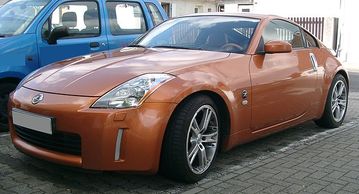 DEATH METAL Vehicle: Nissan 350Z 2-door Country: Japan Horn (\m/) Rating: 4/10 Death Metal is uniquely represented in the automobile world, because the Nissan 350Z 2-door has over the years been causing havoc in the USA, mainly due to the fact it is a major contributor to car death-related accidents. Here we quote that "143 deaths per million registrations were Nissan 350Z drivers. So how befitting is it that this car should represent the Death Metal music genre, regardless of it speaking for itself. Now as for the song of choice that would be played to represent this vehicle, it would have to be 'The Final Front' by Hail of Bullets because of the negativity surrounding this metallic four-wheeled coffin. Moreover it could be argued this model was a nail in the coffin for Nissan, it doesn't even look remotely good-looking.  SLUDGE METAL Vehicle: Land Rover Defender Country: UK Horn (\m/) Rating: 4/10 Can you classify mud as a form of sludge or not? Of course you can, therefore representing Sludge Metal is the Land Rover Defender, highly recognizable as a favorite off-road vehicle amongst the farming communities due to it's brilliance at dealing with off-road conditions and the amount of times it is driven around with mud splattered along the sides (almost nostalgic for those Emmerdale fans). As for the song, we feel that the song to represent this countryside monster would have to be any song by Milking The Goatmachine, purely because of the evident farm-pun within the band name. Oh hell, go on and milk that goat till it runs dry fellow metalheads and prep yourself to perform 'Heavy Metal Farmer' at the same time. But why the low score? Well it does not pass itself off as anything remotely wicked looking. 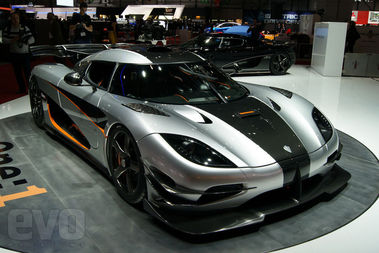 SPEED METAL & POWER METAL Vehicle: Koenigsegg One:1 Country: Sweden Horn (\m/) Rating: 10/10 As luxury generally comes in pairs usually (money and the status symbol pair per se), Speed Metal and Power Metal would best suit the new Koenigsegg One:1 which was unveiled this year at the Geneva Motor Show in Switzerland. With a top speed of 273 mph (which is faster than a Bugatti Veyron) and harboring a 5.0 liter twin-turbo V8 engine delivering 1140bhp, you would not want to blink twice at this monster unless you want to evidently miss it. The power and speed are certainly there and so this is one aspect that proves itself as worthy of being represented this way in the metal music world. As for the song, we have decided to pick one of Sweden's notable exports Sonic Syndicate, their song "Beauty & The Beast" would go well with this car as it has beauty and sounds like a beast. Oh and they are made by hand.... What is this? 3 Japanese teenage girls acting cute and delinquently singing in the style of J-pop or the hit 'Gangnam Style' and dancing to Symphonic Death Metal as the music backdrop. Don't get me wrong I think this trio are going to blow up internationally just like Psy's 'Gangnam Style' and of course the infamous 'Harlem shake', but what makes this band so different is there Visual Kei appearance, not many Japanese Metal bands in this style actually break out in such high velocity. Only a few notable bands like D'espairsRay, Dir En Gray, Crossfaith and X-Japan have made it overseas; some bands like L'Arc En Ciel and Antic Cafe follow in behind. Another great thing to admire about this band is the evidential use of the Japanese language, such a beautiful language and is generally preferred by most Visual Kei-influenced bands in Japan. Having only been around four years and just this year released their debut self-titled album, we could see this band taking the world by storm within the next decade, surpassing some of the metal greats such as Iron Maiden, we may be wrong, but if they carry on with the sterling effort demonstrated thus far, who would argue against us? Their self-titled sold 37,463 copies during it's first week - that for a debut is pretty good owing to the level of international recognition they have, that is - Japanese music in general is not well acknowledged in the general Western music scope, it is not played on the radio and thus does not get picked up by the wider audience, however recently Metal Hammer (UK) picked up on these girls and did an article on them (latest issue April 2014), however here you can find that they have contradicted themselves. Boy were they wrong. Maybe they did not see what we see, everyone is entitled to their own opinion. However if Babymetal do happen to blow up considerably in the future, you read it here first that we put our penny's worth down that they will. They were quick to praise Nik Kai (USA), we sense a contradiction here. It might be that you would need to understand that in Japan, taboo's are totally OFF. It must be good as the album itself clocked up no.1 on both the UK and US iTunes Metal charts, as well as Japan's Oricon Daily Chart. It also peaked at number 4 on the U.S. Billboard Heatseekers chart as well as 187 on the Billboard 200. Global Metal Apocalypse therefore puts Babymetal as 'April's band to watch'. Sign them up for the Royal Variety Performance. http://www.babymetal.jp/ https://www.facebook.com/BABYMETAL.jp |
© 2011-2022 Global Metal Apocalypse
Musical Thoughts
This page is purely for general music discussions and thoughts that fall into the periphery of the music industry. Archives
May 2021
Categories
All
|
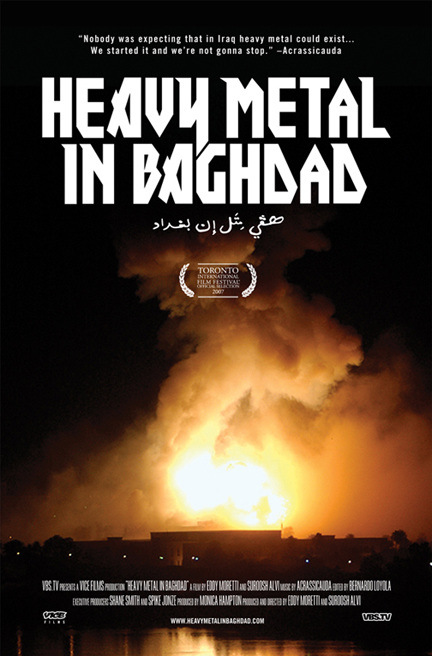
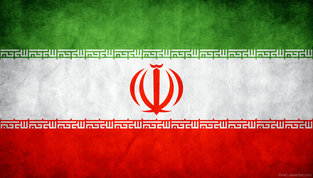
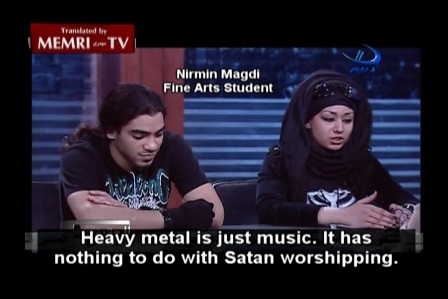


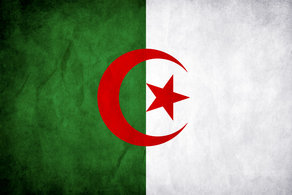







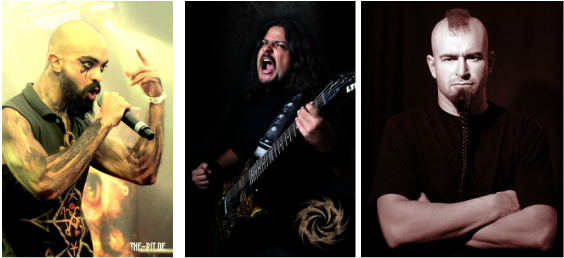



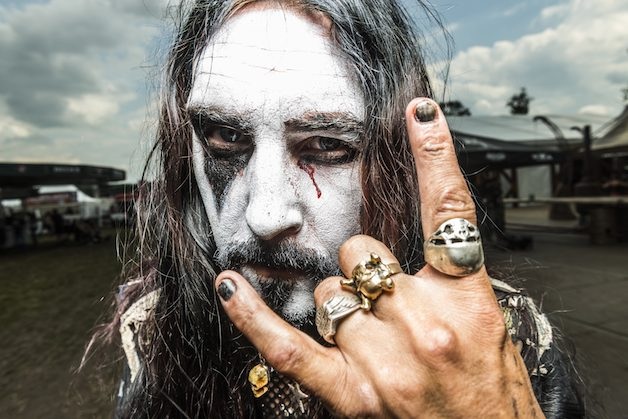
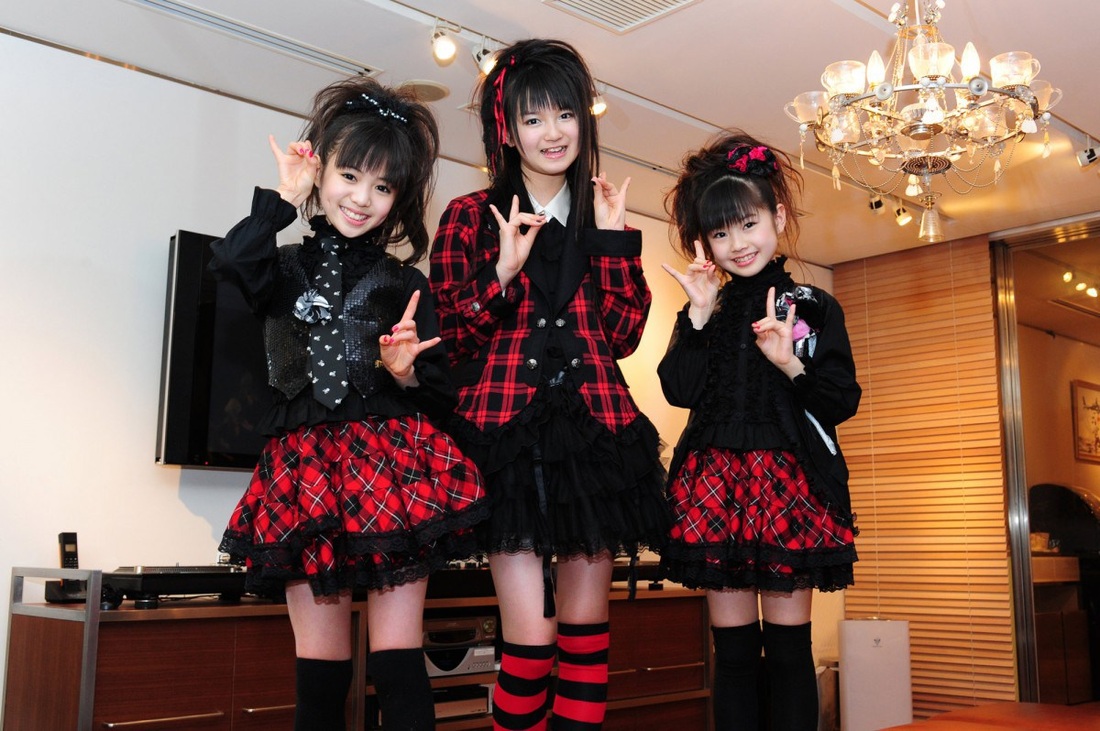
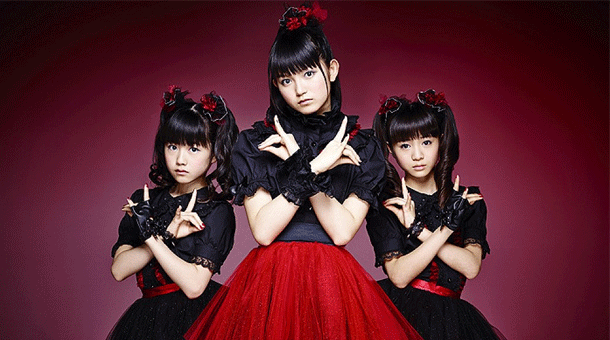
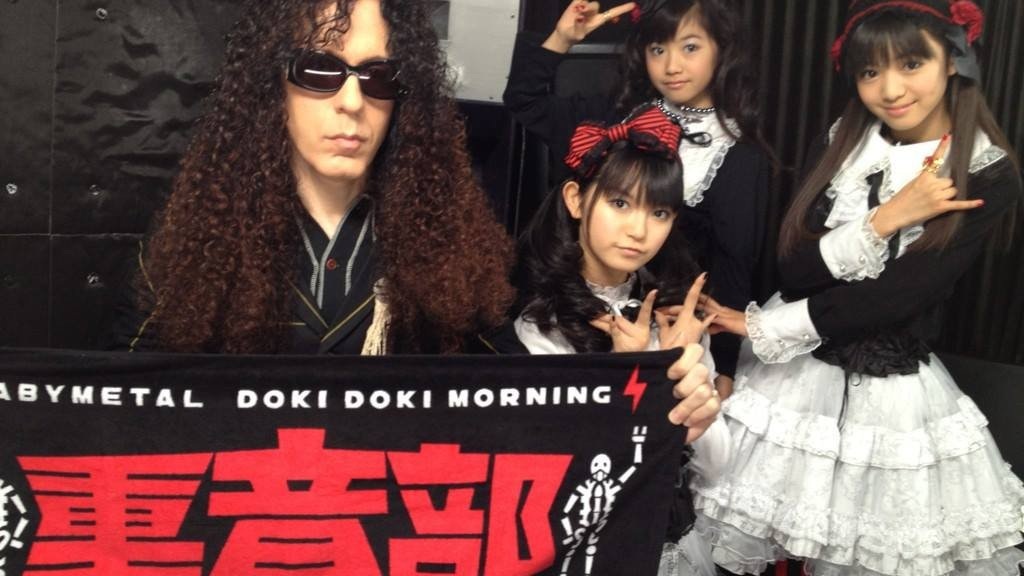
 RSS Feed
RSS Feed